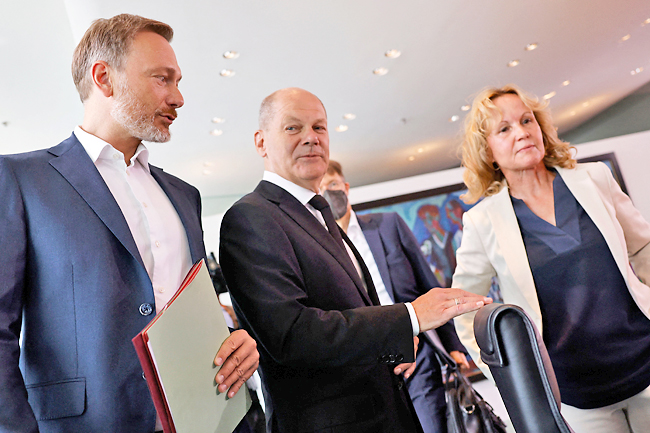BERLIN (AFP) – Germany will offer tax relief worth EUR10 billion (USD10.2 billion) to help workers cope with soaring inflation, Finance Minister Christian Lindner said yesterday.
The package will raise base tax-free allowance as well as bring up the level from which the top income tax rate of 42 per cent will apply. Families will also benefit from higher tax exemptions for dependent children.
Inflation in Germany reached 7.5 per cent in July, fractionally lower than the 7.6 per cent recorded in June, fuelled mainly by energy prices that soared following the invasion of Ukraine.
Lindner said his plan is aimed primarily at fighting the problem of employees who find themselves with a higher tax burden because they have received a pay increase to combat inflation.
As a result, the gain the workers have received is wiped out essentially by the higher taxes due.

The phenomenon, called “cold progression”, also typically hits lower incomes harder.
Lindner said 48 million Germans would be facing higher taxes from January 2023 if no relief was offered.
“For the state to benefit at a time when daily life is becoming more expensive… that is not fair and also dangerous for economic development,” said Lindner.
The tax relief measures come on top of a EUR30 billion package unleashed by Chancellor Olaf Scholz earlier this year to help consumers beat inflation.
The earlier package included a fuel tax cut and a public transport ticket valid across Germany priced at just EUR9 a month for June, July and August.
But it is clear that the clouds hanging over Europe’s biggest economy are only darkening as the country heads into the colder months.
The Ukraine conflict has derailed Germany’s hopes of finally shaking off the coronavirus pandemic and roaring back to growth.
With its export-oriented industries, Germany has been particularly vulnerable to the supply chain bottlenecks and raw material shortages caused by the pandemic.



















































